




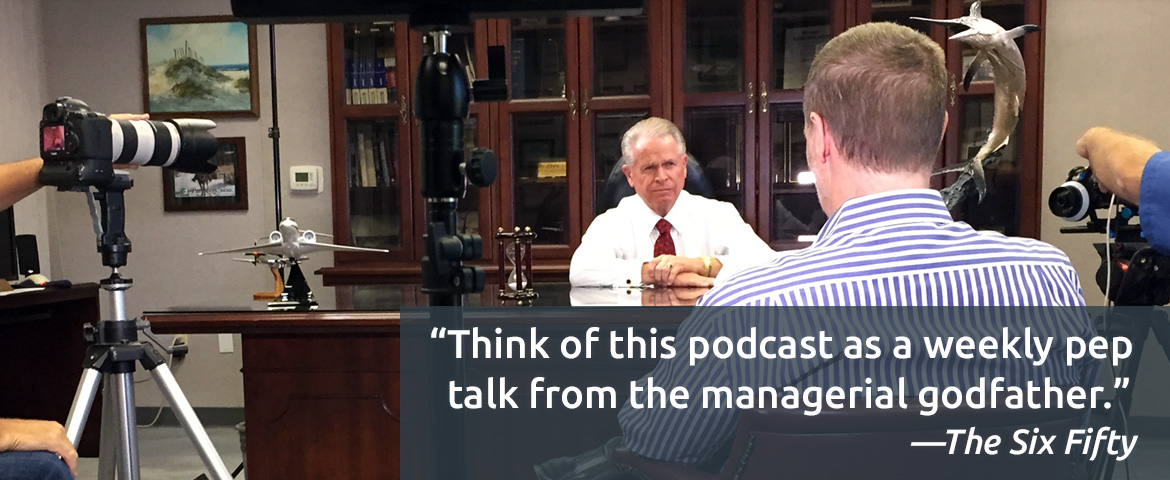
Tough Things First Podcast
The Tough Things First podcast is where you receive short bursts of Ray Zinn’s leadership, executive and entrepreneur’s wisdom. Tough Things First podcasts are typically five minutes long, giving you one important concept to ponder for the rest of the day.

Subscribe to the podcast via:
iTunes | Spotify | Google Podcasts | Stitcher | Pocket Casts | TuneIn | RSS
- May1020170

Traits of Great Leaders
Read moreWhat are the traits of a great leader? Ray Zinn should know. He founded and led the most consistently profitable semiconductor company in Silicon Valley. Hear his thoughts on the traits great leaders should have.
- May032017

Vision and Insight
Read moreThe best entrepreneurs possess vision and insight, but those two attributes are sometimes not easily understood. Tough Things First guest host Rob Artigo, talks with Ray Zinn and Ray’s former employee, Paul Moore, to discuss the difference between vision and insight and why they work best together.
- Apr262017

Change
Read moreChange comes voluntarily and sometimes by force, as with the sudden loss of a job, but is there a right way and wrong way to take the next step? In this episode of Tough Things First, Ray Zinn is host to Jeff Moore, successful entrepreneur and life coach, to discuss making the big changes in life.
- Apr192017

Stock Options
Read moreStock options can be a powerful tool to hang onto your best and brightest employees, but it also means eventually you must take your company public. In this addition of Tough Things First, Ray Zinn is host to David Williams, successful entrepreneur and author, to discuss when, if, and how to choose stock options for retention.
- Apr122017

Listener Questions
Read moreRay Zinn, the longest serving CEO in Silicon Valley, answers questions from the listeners of the Tough Things First podcast.
- Apr052017
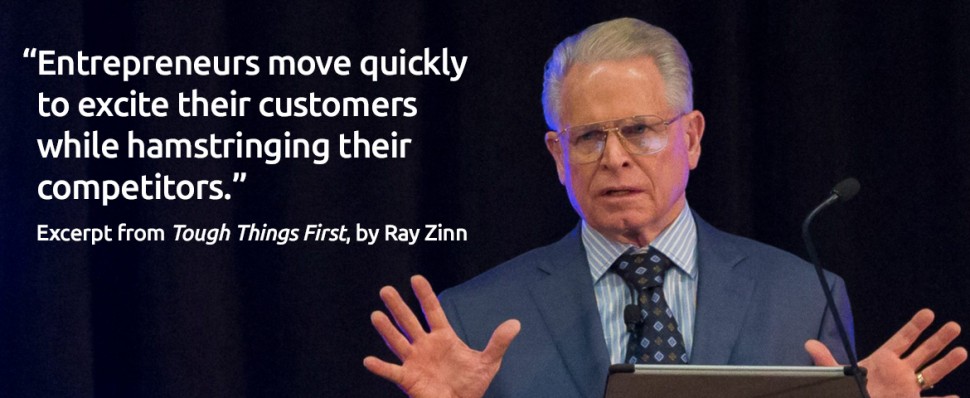
Due Diligence and the Entrepreneur
Read moreRay Zinn and guest host Paul Moore discuss due diligence from the entrepreneur’s perspective. Are you an aspiring entrepreneur or an M&A executive? You will benefit from Ray Zinn’s guidance and years of experience vetting companies.
- Mar292017
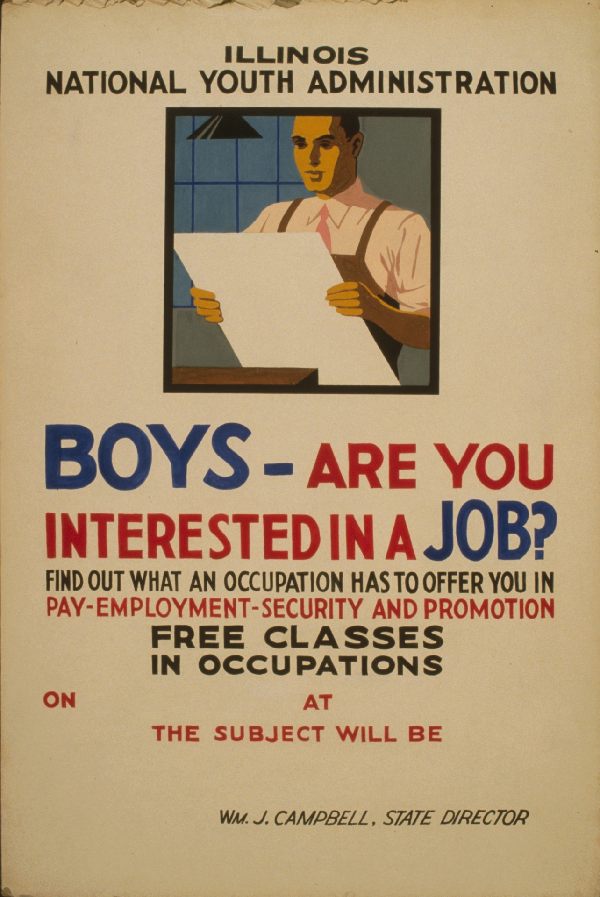
Talent Wars
Read moreCompanies large and small find themselves in direct competition for talent, but is it really a war and far will employers go? In this Tough Tings First podcast, Ray Zinn talks about what it means to be in a seller’s market.
- Mar222017
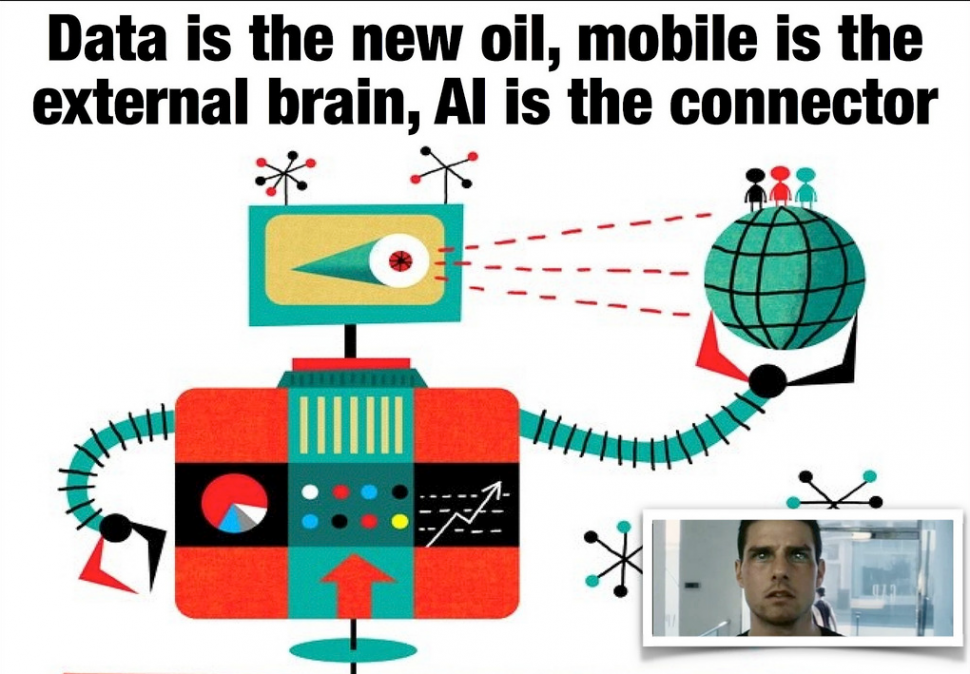
AI and IoT
Read moreSome call it a top priority for businesses in 2017; Be focused more on Artificial Intelligence and the Internet of Things, but is it always possible? In this Tough Tings First podcast, Ray Zinn talks about the basics of AI and IOT, and how to make them part of your business plan.
- Mar152017
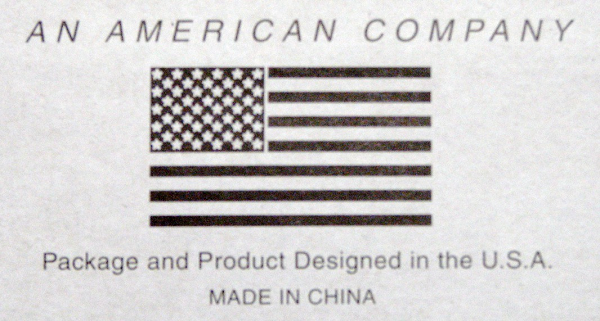
American Made
Read moreIs it possible to build a successful business that uses American manufacturing? In this Tough Things Fist Podcast, Ray Zinn considers what it takes to be Made in America in 2017.
- Mar082017

Religious Tolerance
Read morePolitics and religion, often taboo at the social dinner table, but has it gotten so far that it has stifled free speech? In this Tough Things First Podcast, Ray Zinn talks about the importance of religious tolerance.
- Mar032017

Trump, Tech and Business
Read moreDonald Trump’s first months in office are proving to be unpredictable, but not in all cases. Tough Things First guest host Rob Artigo, talks with Ray Zinn and Paul Moore, to get discuss the changing business climate and where it might be headed.
- Mar012017
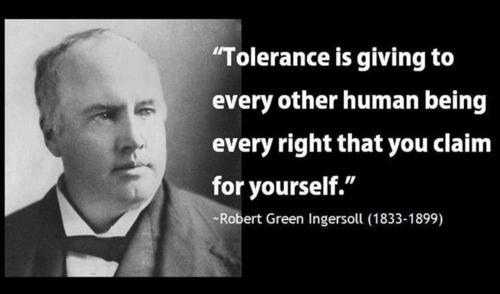
Tolerance is Possible
Read moreAre there different levels of tolerance? In an increasingly diverse world is it even possible to be completely tolerant? In this Tough Tings First podcast, Ray Zinn explores important questions about what tolerance really means.
- Feb222017

Startup Work/Life Balance … It Can Be Done
Read moreLife in startups can be crazy, but working 80 hours weeks is crazy too. Learn how not being an office slave actually makes you successful.
- Feb152017
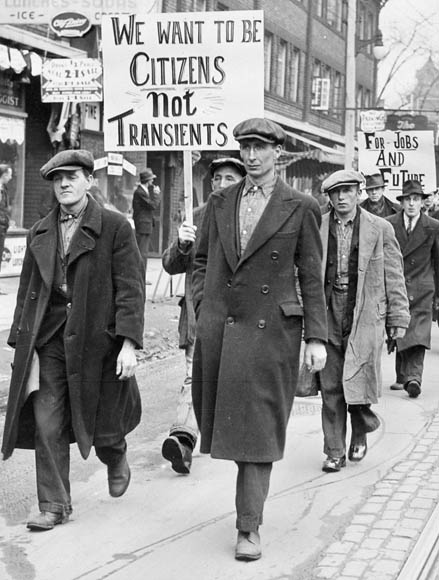
Offshoring and Long Term Costs
Read moreProduct start-ups inevitably face questions about costs, and wonder if it could be cheaper to move manufacturing offshore. There are upsides and downsides. Do you know the risks? Ray Zinn has experience and answers no entrepreneurs should go without. Guest host Rob Artigo returns for another addition of Tough Things First.
- Feb082017

Getting Started – finding a path for the new entrepreneur
Read moreAs an entrepreneur you want to get going … but sometimes it is hard to get started. You may not start like you think you would have started. Make up your mind about your starting path.
- Feb012017
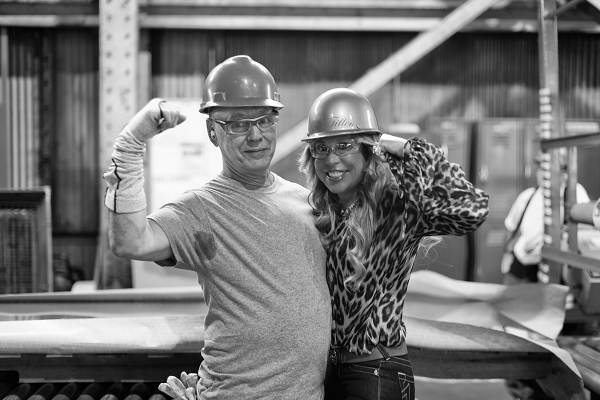
Xers, Millennials and the Future of Work
Read moreThe battle of the generations, is it necessary? Rob Artigo seeks Ray’s advice and thoughts about what makes Gen-Xers and Millennials different and asks, does it matter?
- Jan252017

Against the Grain – don’t leave splinters when creating change
Read moreYou want to get things done, you have no time for sweet talk, you are a go-getter. Are you leaving splinters in your path? You may want to reconsider a different approach.
- Jan182017

The Truth Hurts – how to deliver the truth and not be dispised
Read moreThe truth can be so blunt it hurts, or is it your delivery? Consider the delivery and the amount kindness in your message.
- Jan182017

The Buck Stops Up Top – where leadership and responsibility meet
Read moreAre you willing to take the hit? You are the leader and the leader takes ownership and responsibility along with the consequences. If you are not willing to take the heat, don’t think about leading.
- Jan112017

Exercise and the Entrepreneur
Read moreRay Zinn’s motto is “Do the Tough Things First.” For Ray, that has always meant getting up early and exercising. Rob Artigo talk with Ray Zinn about why exercise and good health are linked to business success.
- Jan042017

Not Invented Here – debugging what bugs people about external change
Read more“Not Invented Here” is usually uttered with contempt and sarcasm. What does the NIH bug do to an organization? It isn’t pretty and you need to watch for it.
- Dec212016

Business Goals: It is never too early to start
Read morePlanning for what happens next is as important to success as the business idea itself. Rob Artigo talks with Ray about setting early business goals. Should a long-term goal be set in place from day one?
- Dec142016

Millennial Compensation – is isn’t all about the Benjamin’s
Read moreThe pool of workers is a constantly changing mix of people with differing values and perspectives. The millennial generation is here and ready to work. How do you attract talent? You have to adapt to their world view.
- Dec072016

Tough Questions for Startups
Read moreStartups are focused on getting venture capital. But should they?
Here are the tough questions they should ask, and will be asked. Understand why you want venture money, and why VCs should care.
- Dec072016
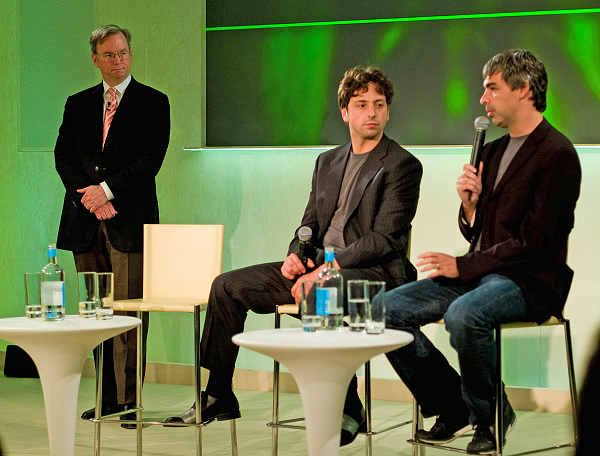
New Blood – wise disruption
Read more“We need new blood to liven up this place.” Have you heard that expression? New blood can invigorate but it can also disrupt to an organization. Finding the line between vigor and negative disruption is key.
- Nov302016

Episode 32: Trying Not Listening – not all input is necessary
Read moreCommunication is the heart of an organization and the heart of relationships. However, there are time we try not to listen to one another. Learn the signs of when listening leads to bad results.
- Nov232016

Episode 31: Lifestyle – lifestyle is more than money, and you can start living it today
Read moreWhat is a good lifestyle? We carry the lifestyle choices we make like baggage. Choose your lifestyle well and live it, today, tomorrow and into your golden years.
- Nov162016

Episode 30: Truth – aligning realities between you company and your customers
Read moreCan you create your own truth? Are your observations truth? What is the truth? Do we actually know the truth? Your truth and your customer’s truth may be different, so learn how to take care in creating your story.
- Nov092016
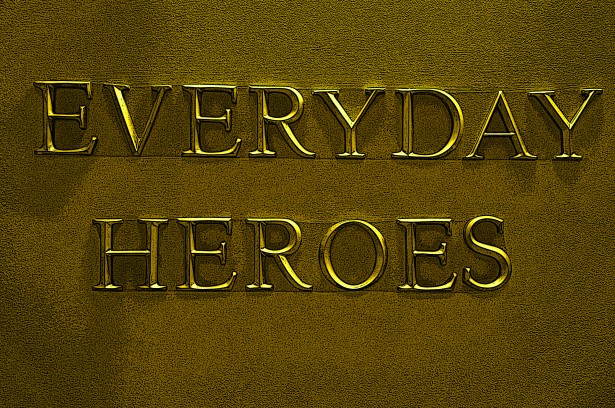
Episode 29: Heroes – you and your team can easily be heroes every day
Read moreWhat are the criteria for a hero? Simple habits make a person a hero in the eyes of those who surround them. Learn how to turn your team members into heroes.
- Nov022016

Episode 28: Friday Talks and Employee Motivation
Read moreLooking for employee inspiration, education and motivation? In this week’s podcast, Ray Zinn talks about the “Friday Talk” technique used at Micrel. These talks were successful in generating and sharing multiple points of view and subjects and helping to condition and reinforce values within every part of a company.
- Oct262016

Episode 27: The American Dream
Read moreIs the American Dream still alive? In this episode, Ray Zinn discuss the role of optimism in the entrepreneurial mindset, the importance of passion and the conviction required to build and lead an enduring business.
- Oct142016

Election Civility
Read moreThis presidential election has demonstrated the lowest levels of common decency and the most disgusting form of vulgar communications, disrespect. Many of us are so confused and upset at the latest attacks that we’re left wondering if we should even take the time to vote. In this podcast, Ray Zinn openly discuss our challenging feelings and ultimately the importance of voting our voice and believing that no matter what the outcome, we have a tremendous country.
- Oct122016

Special Edition: David Greer and Corporate Culture
Read moreDavid Greer — an entrepreneur, angel investor and business coach — discusses with Ray Zinn why corporate culture is so important, and the steps Ray took to create a culture that drove the most consistently profitable semiconductor company in Silicon Valley.
- Sep142016

Special Edition: David Greer and Corporate Planning
Read moreDavid Greer — an entrepreneur, angel investor and business coach — discusses strategic corporate planning with Ray Zinn, who ran the most consistently profitable semiconductor company in Silicon Valley.
- Sep072016

Episode 22: Key to hiring the best employees
Read moreHiring really good employees predisposes your company toward success. But how do you do this? Ray Zinn knows how, having run the Silicon Valley semiconductor company with the lowest employee turnover rate.
- Aug312016

Episode 21: Momentum: How to keep employees engaged
Read moreLife and work are marathons, not sprints – regardless of what too many startups believe. But few employees are marathon runners. One of your jobs is to keep the momentum going throughout your organization so that employees don’t fade out or leave the company.
Ray Zinn, the longest serving CEO in Silicon Valley, with 37 years heading the most consistantly profitable semiconductor company, knows a few things about keeping employees engaged, happy and productive over the long haul.
- Aug242016

Episode 20 – The employee happiness quotient
Read moreWhat makes happy people, and thus happy employees. Silicon Valley’s longest serving CEO tells you the secret and how to measure it.
- Aug102016

Episode 18: Overcoming Entrepreneurial Adversity
Read moreRay Zinn knows adversity. He went blind during his company’s IPO, yet stayed at the helm for another 20 years. Learn whey when the going gets tough, entrepreneurs get tough too. Start treating adversity as a growth opportunity to gamifiy success.
- Aug032016

Special Edition: Draper University student interviews Ray Zinn on Venture Capital
Read moreAngie Carrillo, a student at Draper University and co-founder of Liks.co, interviews Ray Zinn about funding startups. The wide-ranging discussion covers what founders need to think about when they seek money to get things going.
- Jul272016

Episode 17: Wine industry vs semiconductor
Read moreRay Zinn discusses how offshoring in his semiconductor industry has impeded American social and economic progress, and what Congress should be paying attention to.
- Jul202016

Special Edition: Greg McKeown, Essentialism and Discipline
Read moreGreg McKeown, the New York Times bestselling author of Essentialism interviews Ray Zinn to discuss discipline and how is makes leaders more effective.
Greg McKeown has dedicated his career to discovering why some people break through to the next level—and others don’t. The definitive treatment of this issue is addressed in McKeown’s latest project: the instant New York Times and Wall Street Journal bestseller, Essentialism: The Disciplined Pursuit of Less. Ray Zinn is quoted in Essentualism and now the two discuss their mutual interest about doing more by doing less.
- Jul132016

Special Edition: Humanistic Vision
Read moreAnu Parthasarathy interviews Ray Zinn, the longest serving CEO in Silicon Valley, on why entrepreneurs who having a focus on people are more successful than those who focus on money, and how any leader can change their focus accordingly.
- Jul062016
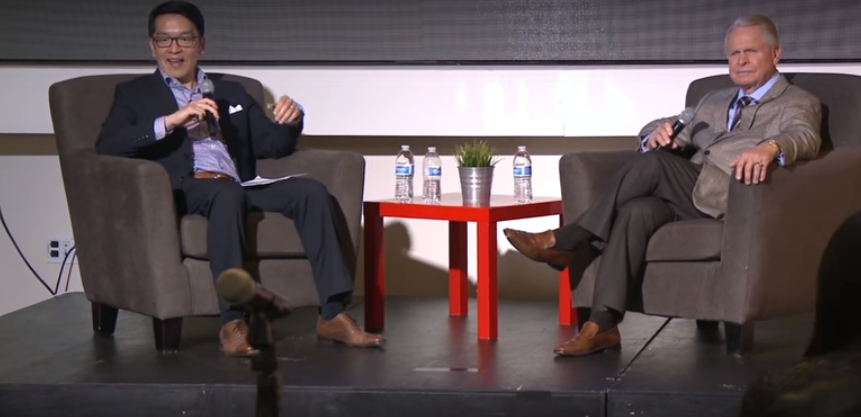
Episode 15: Audience questions for Ray Zinn
Read moreRay Zinn answers questions encountered at his speaking events, and those from Tough Things First audience members.
- Jun292016

Episode 14: Multi-generational Entrepreneurism
Read moreRay Zinn discusses Silicon Valley entrepreneurism with a special guest interviewer, now active in the red hot tech culture.
- Jun222016

Episode 13: The unintended consequences of misguided policies
Read morePolicies. Nobody likes to write them. Some employees refuse to live by them. But Silicon Valley’s longest serving CEO knows how they work, and how they occasionally don’t. In this episode of the Tough Things First podcast, Ray Zinn discusses how policies can actually cause problem within an organization.
- Jun152016

Episode 12: The up and down side to stricter emigration enforcement
Read moreRay Zinn has some specific thoughts about the topic of immigration, enforcement and the U.S. economy. With 37 years running a very successful semiconductor company, Ray has seen the impact of bring in talent from abroad as well as the rampant offshoring within his industry, so his thoughts on immigration will be multifaceted.
- Jun082016

Episode 11: Leadership self-discipline
Read moreWhat are some daily practices for developing self-discipline, or for organizational discipline, and how does a leader transfer his own self-discipline to other people, and in turn have them carry the mantle? Ray Zinn answers a listener question from Episode 2 concerning discipline and the organization.
- Jun012016

Episode 10: The lose-lose proposition
Read moreWe all lose when an atmosphere of anger, hostility or contention prevails. Ray Zinn’s company, Micrel, was built in part on a culture of respecting the dignity of every individual, which led to Micrel having an employee turn-over rate half that of his industry. Micrel was somewhat legendary as a civil place to work. In this episode, Ray discusses anger, hostility and contention between people, where does it come from, how it hurts an organization, and a what leader can do to mitigate it to create a win-win situation.
- May252016

Episode 9: Focus, filters and blinders
Read moreRay goes into great detail about entrepreneurial focus, how to construct filters to prevent being overwhelmed, the necessity of managerial and financial stall horns, and more.
- May182016

Episode 8: How do we get the U.S. economy growing again
Read moreThe American economy is moribund. This has a direct effect on businesses and an indirect effect on employees. Until the economy escapes the doldrums it has been in over the last eight years, everyone prospects look bleak. Today we talk economics and elections with Ray Zinn.

